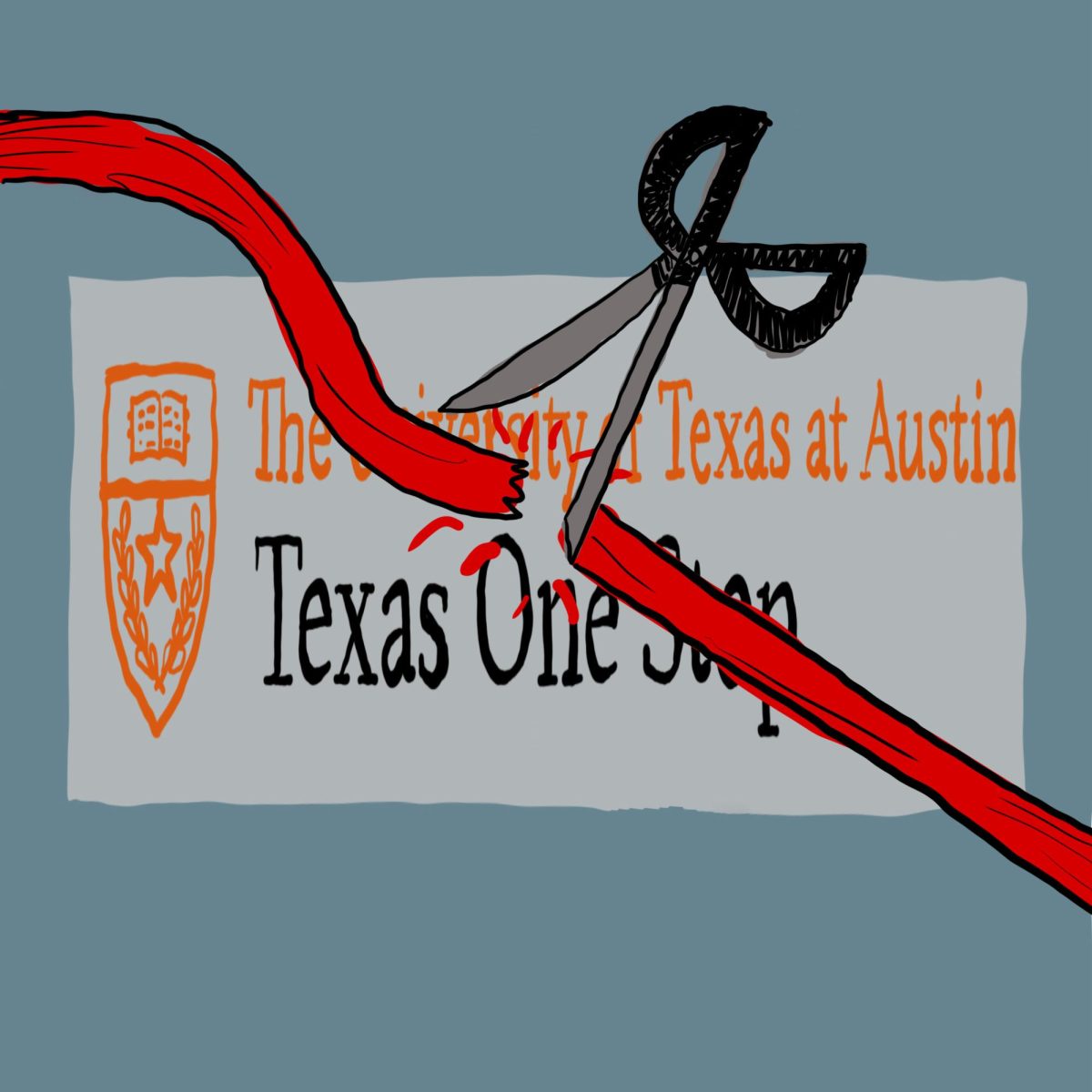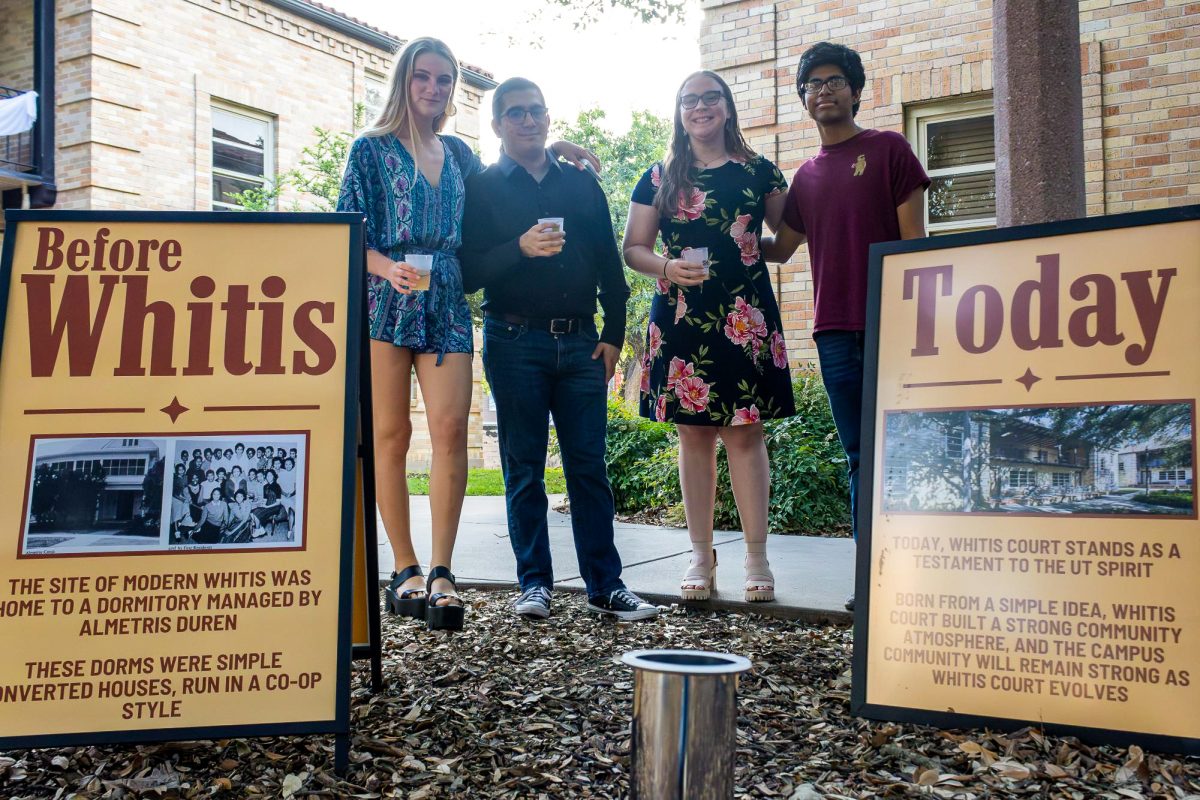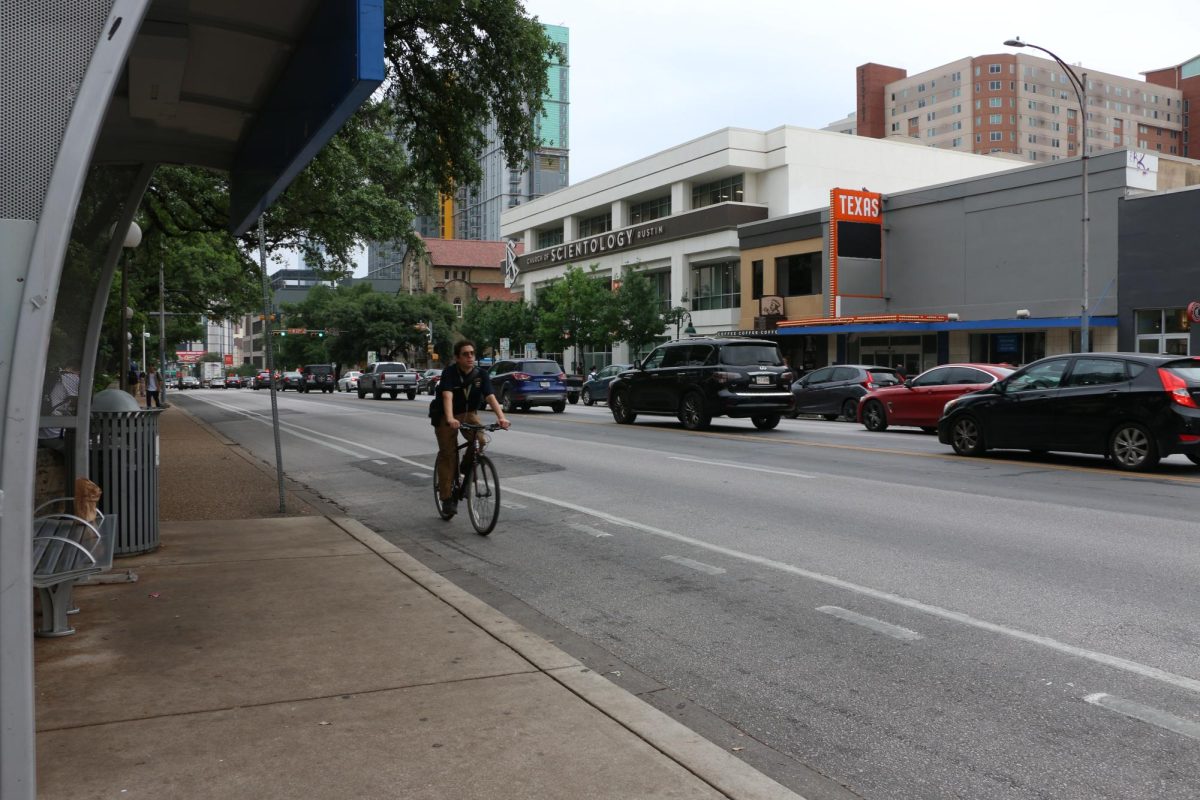Anybody who watched the 2009 feature film “2012” was exposed to many scientific inaccuracies about how the world may end, according to a College of Natural Sciences presentation.
Students gathered Wednesday evening for a lecture and celebration in honor of Natural Sciences Week at UT. College of Natural Sciences associate dean Sacha Kopp kicked off the night by discussing the film’s exaggeration.
Kopp said the 11-year solar cycle in which the sun goes through periods of magnetic storms and periods of quiet activity is a key reason why the world will not be destroyed in 2012. However, he did qualify that some parts of the movie were almost true.
“Yellowstone is featured in the movie as the beginning point at which the end of world will start because it’s a hotspot,” Kopp said. “In these hotspots are places where you would find things like volcanic activity, and Yellowstone is such a place.”
Yellowstone, however, hasn’t seen any active volcanoes for at least 1,000,000 years and Kopp assured students it was not a prominent concern.
“Neutrinos will not cause the end of the earth,” Kopp said. “You should not worry. You must study for your final exams.”
Kopp began his work at UT as a physicals professor in 1999 and was appointed associate dean in 2009. He handles undergraduate curriculum, creating outside research opportunities for students and advising students toward their career goals.
“Natural Sciences Week allows students to get involved and see what’s out there,” Kopp said. “I decided to use ‘2012’ because a lot of people have seen it and it’s something to talk about.”
The Natural Sciences Council organizes and hosts the annual event, inviting faculty and staff to participate in the social and informational activities throughout the week.
Fine arts freshman Ashley Miller came to the event after an astronomy class sparked her interest.
“I like how he explained it, especially for non-science majors,” Miller said.
A Star Party, held on the rooftop of the Robert Lee Moore Hall, followed the lecture. The RLM rooftop provides one of the best views of Austin and is home to the telescope.
Students such as math freshman Kyle Crop came to enjoy the liquid nitrogen ice cream and an opportunity to stargaze through the telescope.
“I’m enjoying myself,” Crop said. “It’s like a support group for nerdiness.”
The Star Party and lecture were one of many events offered to students during Natural Sciences week. On Thursday, the Natural Sciences Council will host The Look to Land a Job, and on Friday the Dean’s Scholars luncheon and a discussion titled The Importance of Funding Research will be held.
Printed on Thursday, September 29, 2011 as: Natural Sciences Week hosts discussion, Star Party




















